Minsk for Ukraine crisis summit
Minsk, Belarus (CNN)All
eyes are on Minsk on Wednesday as officials from Russia, Ukraine and
separatist groups meet to hammer out proposals for a possible peace deal
for Ukraine.
Three of the main players -- French President Francois Hollande, German Chancellor Angela Merkel
and Ukrainian President Petro Poroshenko -- were in the Belarus capital
by early Wednesday evening. They were awaiting Russian President Vladimir Putin, who a Kremlin spokesman told CNN would fly to Minsk to take part in the meetings.
The
high-stakes summit comes against a backdrop of worsening conflict in
eastern Ukraine that has claimed a growing number of civilian lives.
Speaking
at a Cabinet meeting Wednesday prior to his arrival in Minsk,
Poroshenko said the summit was "the most important one so far I have had
as a President," Ukraine's state-run Ukrinform news agency reported.
The
President said he and Ukraine's lawmakers were ready to introduce
martial law across the country if "further irresponsible actions" lead
to more escalation of the conflict.
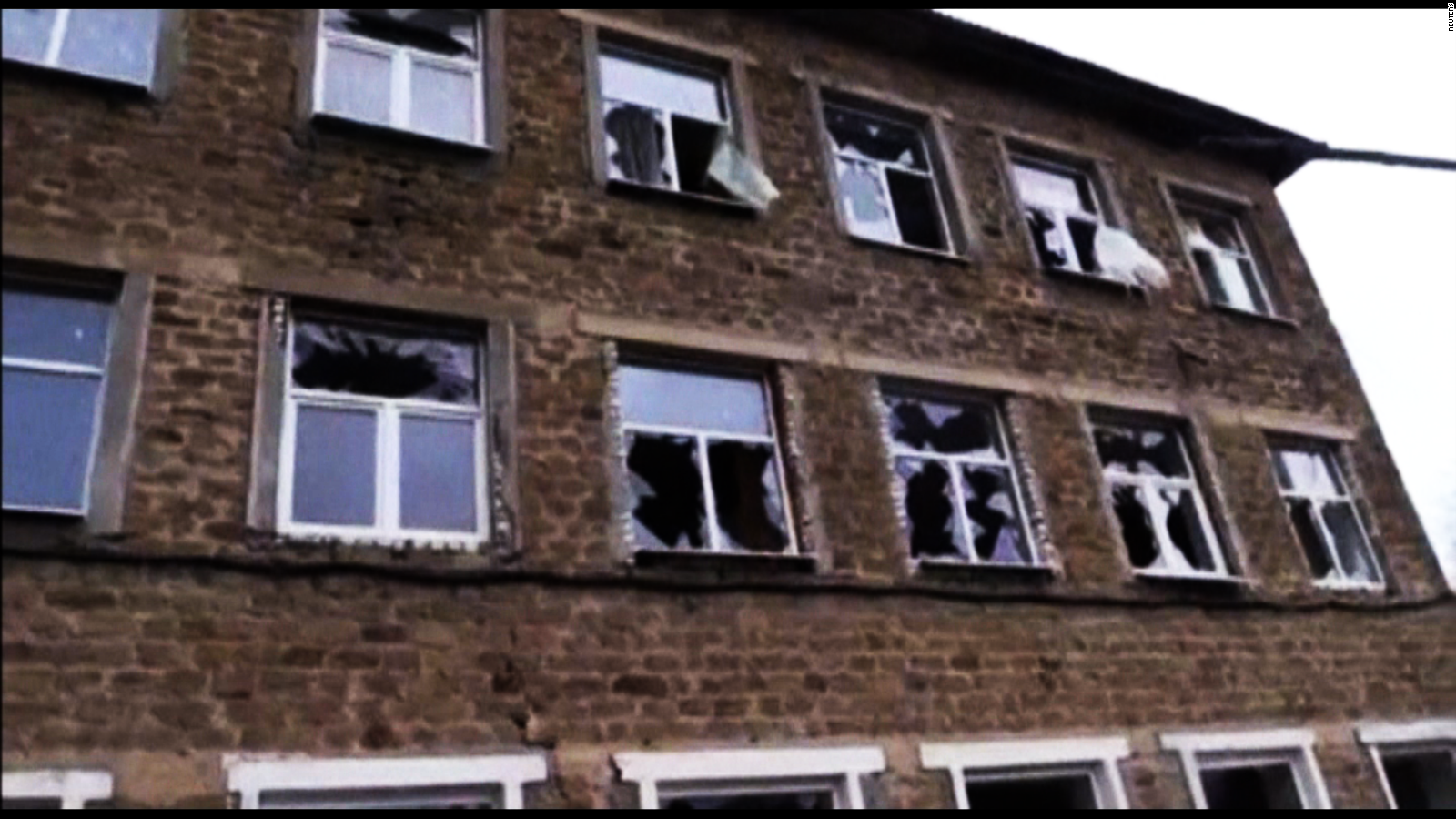
"It
will depend on the results of the summit whether we stop the aggressor
through diplomatic means or go to a totally different regime," he is
quoted as saying.
Video showed Denis
Pushilin of the self-proclaimed Donetsk People's Republic and Vladislav
Deinego of the Luhansk People's Republic at the talks, speaking with
reporters in Minsk on Tuesday night, putting to rest earlier doubts
about their attendance.
Monitors from the Organization for Security and Cooperation in Europe also attended the preliminary meeting.
But leaders involved in the talks still have a long road to travel before any lasting agreement is reached.
French
and German officials have sounded a note of caution about the prospects
of finding consensus, and the talks could run late into the night.
'Seize this chance'
The
main points of negotiations of the so-called Normandy group -- the
leaders of France, Germany, Russia and Ukraine -- are expected to be the
withdrawal of heavy weapons, the creation of a demilitarized zone and
the future status of the Donbas area in Ukraine, which comprises Luhansk
and Donetsk.
German Foreign Minister
Frank-Walter Steinmeier said Tuesday that the talks were "another huge
chance to take a big first step towards de-escalation, hopefully towards
a silencing of the weapons.
"But I
underline it again, nothing has been resolved yet. The taking place of
the summit alone is not a guarantee of its success. Therefore I urge and
expect Moscow and Kiev to take it seriously and in the face of imminent
military conflict really seize this chance."
Likely
sticking points include who will control Ukraine's border with Russia
in the disputed territory, disarmament of the separatists and what
degree of political autonomy is granted to the Donetsk and Luhansk
regions.
Poroshenko has been invited to
Brussels, Belgium, by European Council President Donald Tusk on
Thursday to address European lawmakers and "coordinate future steps,"
Poroshenko's website said.
Meanwhile,
the separatist leaders have been invited to Moscow, where they will
brief Russian lawmakers on the outcome of the Minsk talks.
The
conflict, which broke out in April, soon after Russia annexed Ukraine's
southeastern Crimea region, has claimed more than 5,000 lives, many of
them civilians.
Bus station shelled
There's
been no let-up in the violence ahead of the peace talks -- in fact,
both sides appear to have stepped up their efforts to gain territory
before the lines of the potential demilitarized zone are drawn.
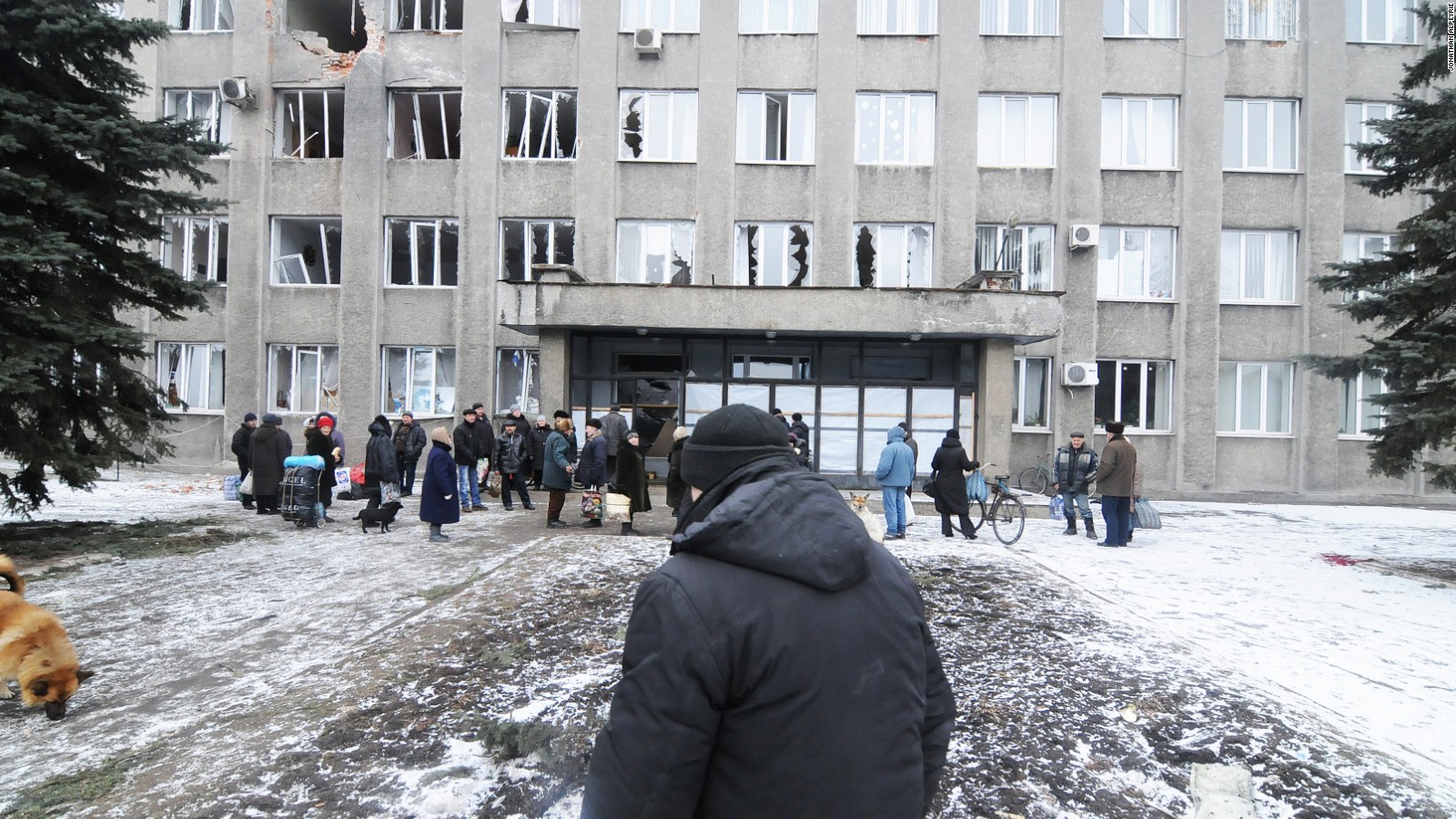
Four
people were killed and nine injured after a central bus station in
Donetsk city was hit by shelling Wednesday morning, according to the
official news agency of the Donetsk People's Republic, DAN.
The Donetsk city office website reported that two buses were hit and burst into flames.
In
the past 24 hours, 19 Ukrainian soldiers have been killed and 78
injured in the conflict zone in eastern Ukraine, a spokesman for the
Ukrainian military operation against the separatists, Vladislav
Seleznyov, told reporters in Kiev on Wednesday.
Shelling
in the town of Kramatorsk on Tuesday killed 12 civilians and injured
35, including children, with 29 military personnel also injured,
according to the Kiev-backed Donetsk regional authority.
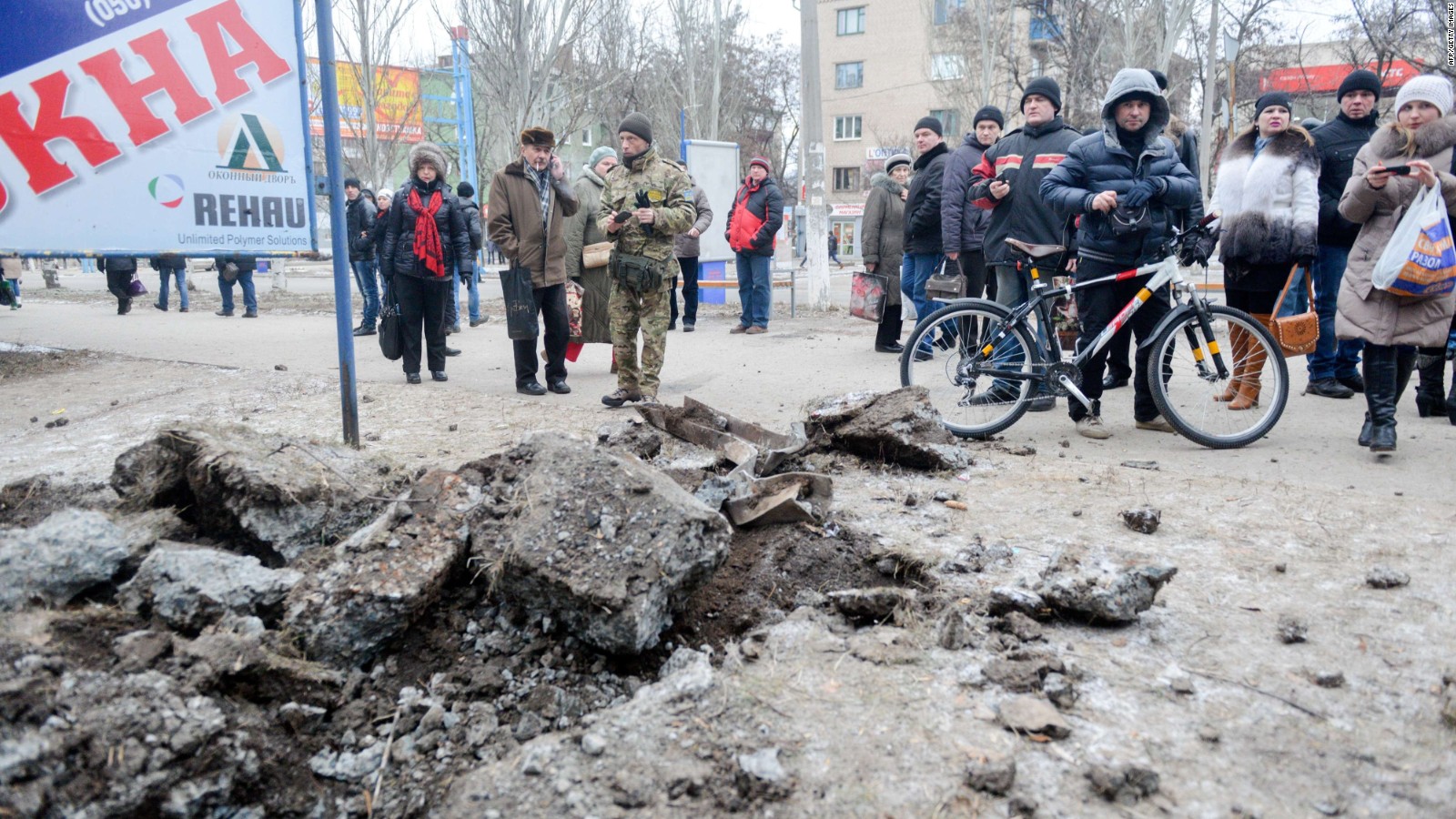
Kramatorsk,
deep inside Ukrainian-held territory, is the location of the main base
for the government's military operation against the separatists, which
it calls the anti-terrorist operation, or ATO.
Ukraine's
Foreign Ministry condemned what it said was "another bloody crime" by
the separatists and said Russia, which it accuses of sending heavy
weapons and troops across the border, should be held responsible.
The OSCE said its monitors saw evidence that cluster bombs had been used in Kramatorsk. Cluster bombs are banned by many states because of their deadly impact on civilians.
Fighting
continues around the strategically important town of Debaltseve, which
has been under siege by separatist forces for weeks.
Ukrainian
Gen. Oleksandr Rozmaznin told CNN the town remained under Ukrainian
control despite a separatist bid to attack the police station there. He
said there was no fighting in the streets.
A Ukrainian unit also launched an offensive Wednesday against the separatists near the city of Mariupol in the southeast.
Each side has accused the other of shelling civilian areas.
Obama: Seize opportunity for peace
U.S. President Barack Obama called Putin on Tuesday and urged him to seize the opportunity for peace, the White House said.
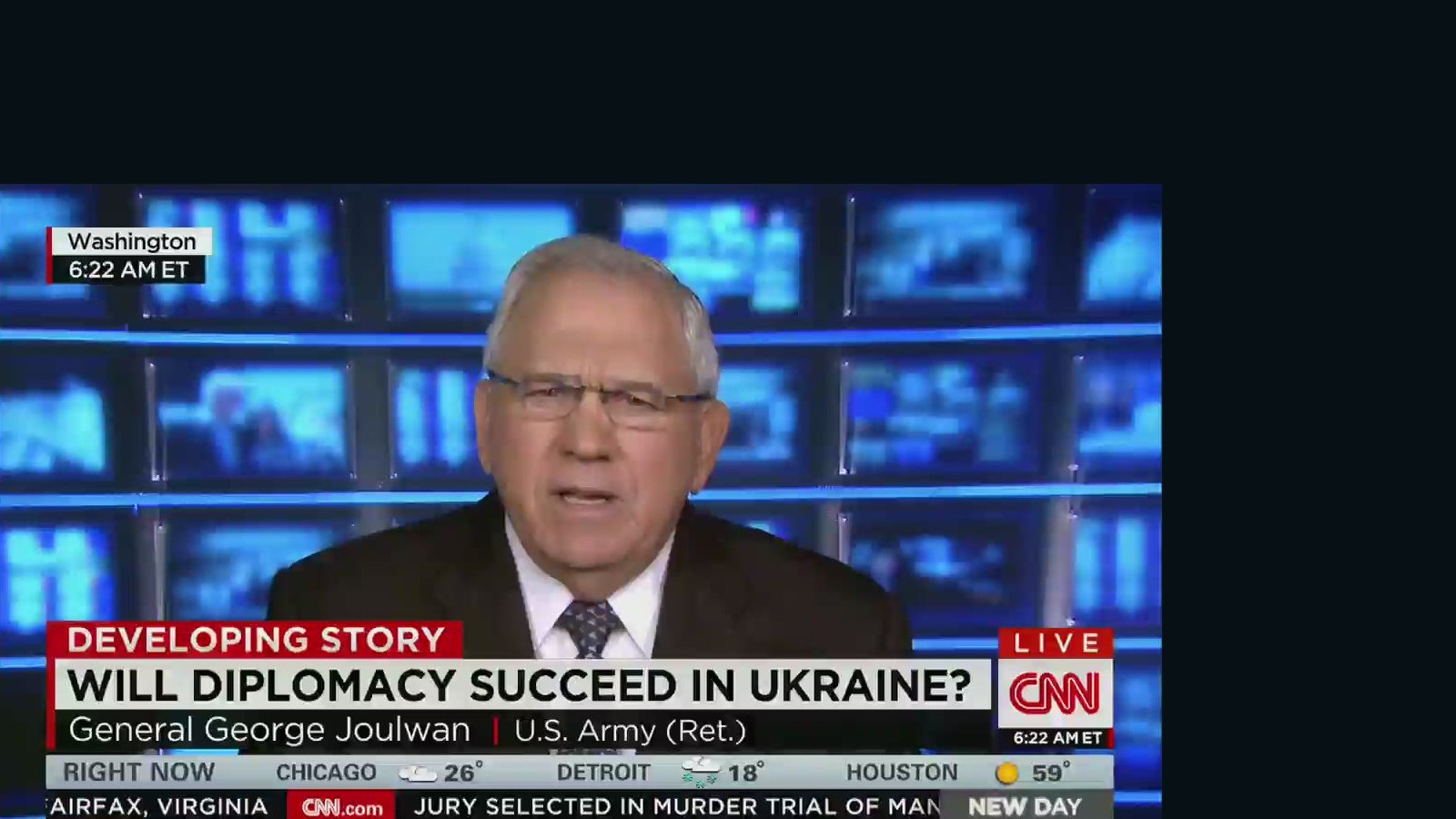
"The
President emphasized the importance of reaching and implementing a
negotiated settlement underpinned by the commitments in the (prior)
Minsk agreement. However, if Russia continues its aggressive actions in
Ukraine, including by sending troops, weapons and financing to support
the separatists, the costs for Russia will rise," the White House said.
Obama has not ruled out providing weapons to the Ukrainian military to help it defend against the separatists' advances.
A Kremlin readout of the call said it focused on finding a peaceful settlement of the crisis.
Russian
Foreign Minister Sergey Lavrov, speaking alongside his Greek
counterpart in Moscow on Wednesday, said there was "no military solution
to the crisis" in Ukraine.
Peace can
be achieved only through dialogue between Kiev and the people of eastern
Ukraine, he said, adding: "The rights of all people who live there need
to be respected."
Russian state news agency Sputnik reported that Lavrov would be traveling to Minsk for the talks.
The
European Union's Foreign Affairs Council agreed on additional sanctions
Monday against Russian and separatist interests but said their
implementation would be delayed for a week to "give space for current
diplomatic efforts."
Demilitarized zone?
The big challenge facing the leaders meeting Wednesday in Minsk is whether they can reach a peace agreement that will stick.
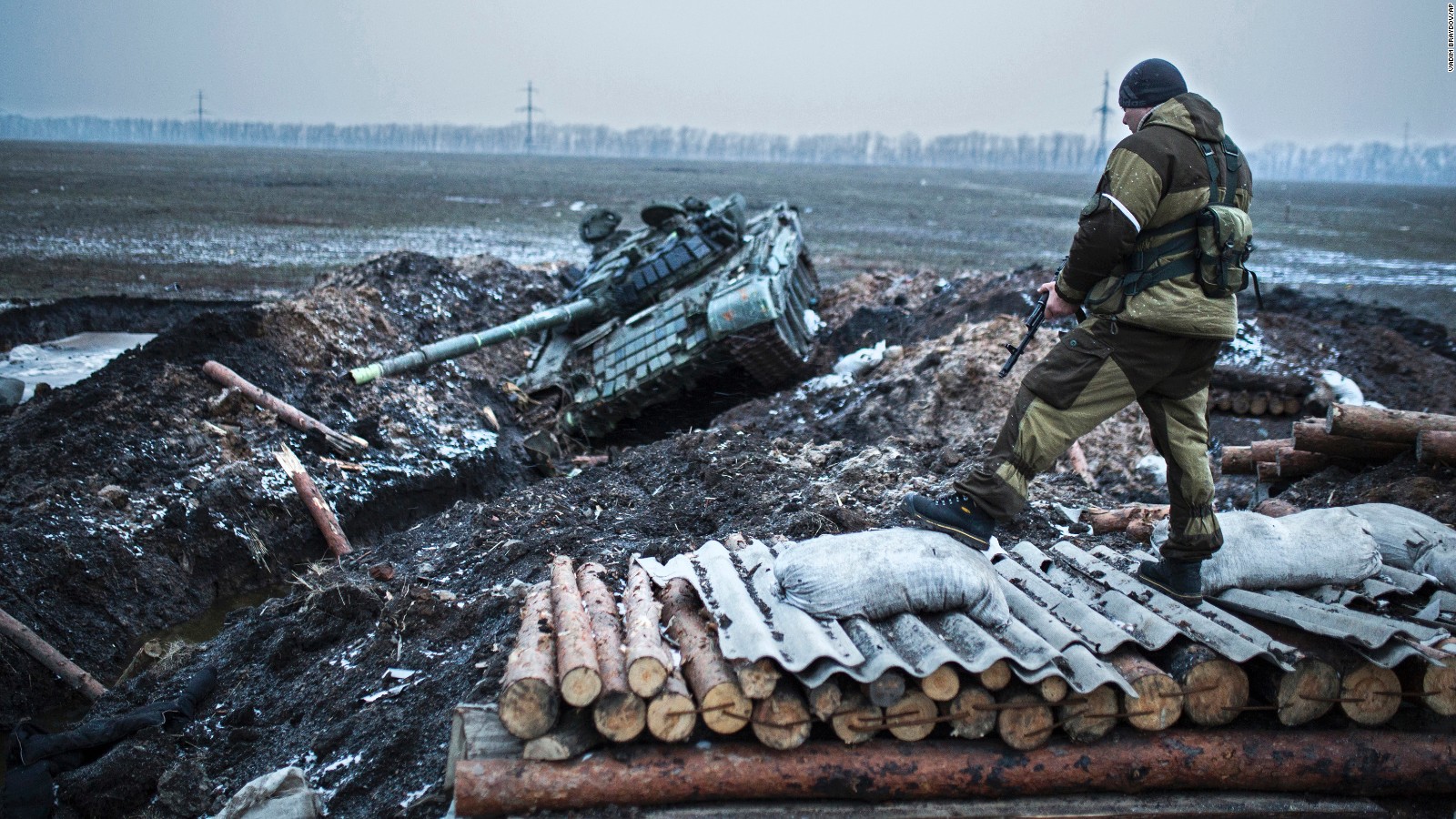
A
previous peace deal was signed in September, also in Minsk. It called
for a drawback of heavy weapons, self-rule in the eastern regions and a
buffer zone along the Russia-Ukraine border.
The new plan envisions a much broader demilitarized zone to run along the current front lines.
The September agreement quickly disintegrated, and the violence continued.
Russia
has steadfastly denied accusations that it is sending forces and
weapons into Ukraine. But top Western and Ukrainian leaders have said there isn't any doubt that Russia is behind surging violence and separatists' efforts to take over territory in eastern Ukraine.
All the while, the crisis in Ukraine, which stemmed from a trade agreement, has forced more than 1.5 million people from their homes, according to the United Nations.
Hiç yorum yok:
Yorum Gönder